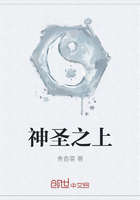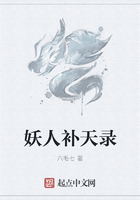For some days Avignon had its assassins, as Marseilles had had them, and as Nimes was about to have them; for some days all Avignon shuddered at the names of five men--Pointu, Farges, Roquefort, Naudaud, and Magnan.
Pointu was a perfect type of the men of the South, olive-skinned and eagle-eyed, with a hook nose, and teeth of ivory. Although he was hardly above middle height, and his back was bent from bearing heavy burdens, his legs bowed by the pressure of the enormous masses which he daily carried, he was yet possessed of extraordinary strength and dexterity. He could throw over the Loulle gate a 48-pound cannon ball as easily as a child could throw its ball. He could fling a stone from one bank of the Rhone to the other where it was two hundred yards wide. And lastly, he could throw a knife backwards while running at full speed with such strength and precision of aim that this new kind of Parthian arrow would go whistling through the air to hide two inches of its iron head in a tree trunk no thicker than a man's thigh. When to these accomplishments are added an equal skill with the musket, the pistol, and the quarter-staff, a good deal of mother wit, a deep hatred for Republicans, against whom he had vowed vengeance at the foot of the scaffold on which his father and mother had perished, an idea can be formed of the terrible chief of the assassins of Avignon, who had for his lieutenants, Farges the silk-weaver, Roquefort the porter, Naudaud the baker, and Magnan the secondhand clothes dealer.
Avignon was entirely in the power of these five men, whose brutal conduct the civil and military authorities would not or could not repress, when word came that Marshal Brune, who was at Luc in command of six thousand troops, had been summoned to Paris to give an account of his conduct to the new Government.
The marshal, knowing the state of intense excitement which prevailed in the South, and foreseeing the perils likely to meet him on the road, asked permission to travel by water, but met with an official refusal, and the Duc de Riviere, governor of Marseilles, furnished him with a safe-conduct. The cut-throats bellowed with joy when they learned that a Republican of '89, who had risen to the rank of marshal under the Usurper, was about to pass through Avignon. At the same time sinister reports began to run from mouth to mouth, the harbingers of death. Once more the infamous slander which a hundred times had been proved to be false, raised its voice with dogged persistence, asserting that Brune, who did not arrive at Paris until the 5th of September, 1792, had on the 2nd, when still at Lyons, carried the head of the Princesse de Lamballe impaled on a pike.
Soon the news came that the marshal had just escaped assassination at Aix, indeed he owed his safety to the fleetness of his horses.
Pointu, Forges, and Roquefort swore that they would manage things better at Avignon.
By the route which the marshal had chosen there were only two ways open by which he could reach Lyons: he must either pass through Avignon, or avoid it by taking a cross-road, which branched off the Pointet highway, two leagues outside the town. The assassins thought he would take the latter course, and on the 2nd of August, the day on which the marshal was expected, Pointu, Magnan, and Naudaud, with four of their creatures, took a carriage at six o'clock in the morning, and, setting out from the Rhone bridge, hid themselves by the side of the high road to Pointet.
When the marshal reached the point where the road divided, having been warned of the hostile feelings so rife in Avignon, he decided to take the cross-road upon which Pointu and his men were awaiting him; but the postillion obstinately refused to drive in this direction, saying that he always changed horses at Avignon, and not at Pointet.
One of the marshal's aides-de-camp tried, pistol in hand, to force him to obey; but the marshal would permit no violence to be offered him, and gave him orders to go on to Avignon.
The marshal reached the town at nine o'clock in the morning, and alighted at the Hotel du Palais Royal, which was also the post-house.
While fresh horses were being put to and the passports and safe-conduct examined at the Loulle gate, the marshal entered the hotel to take a plate of soup. In less than five minutes a crowd gathered round the door, and M. Moulin the proprietor noticing the sinister and threatening expression many of the faces bore, went to the marshal's room and urged him to leave instantly without waiting for his papers, pledging his word that he would send a man on horseback after him, who would overtake him two or three leagues beyond the town, and bring him his own safe-conduct and the passports of his aides-de-camp. The marshal came downstairs, and finding the horses ready, got into the carriage, on which loud murmurs arose from the populace, amongst which could be distinguished the terrible word 'zaou!' that excited cry of the Provencal, which according to the tone in which it is uttered expresses every shade of threat, and which means at once in a single syllable, " Bite, rend, kill, murder!"
The marshal set out at a gallop, and passed the town gates unmolested, except by the howlings of the populace, who, however, made no attempt to stop him. He thought he had left all his enemies behind, but when he reached the Rhone bridge he found a group of men armed with muskets waiting there, led by Farges and Roquefort. They all raised their guns and took aim at the marshal, who thereupon ordered the postillion to drive back. The order was obeyed, but when the carriage had gone about fifty yards it was met by the crowd from the "Palais Royal," which had followed it, so the postillion stopped.













